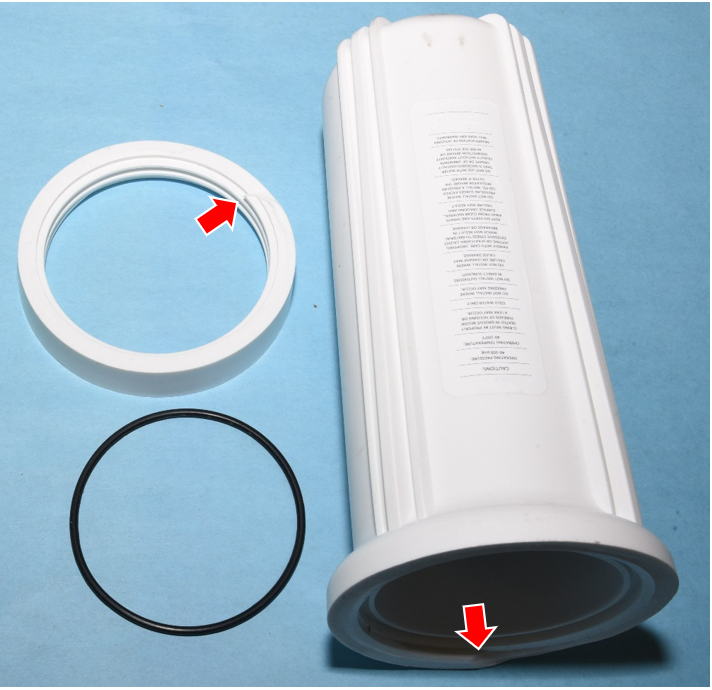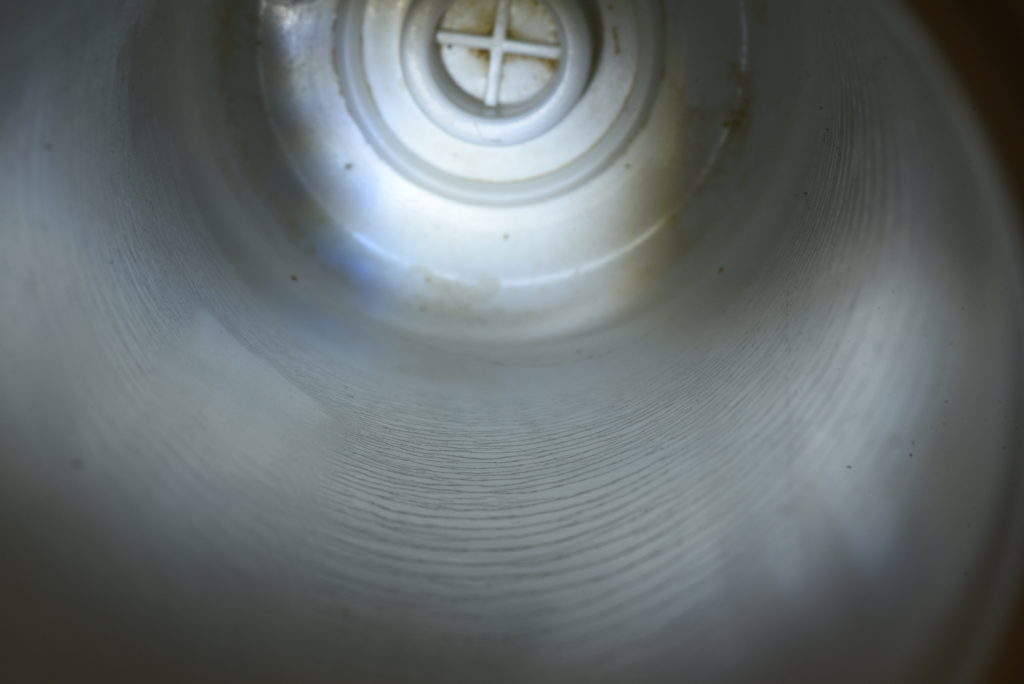
Knott Laboratory provides forensic engineering and animation, Civil & Structural, and Fire & Explosion Investigation services to reconstruct accidents.
Water Filter Maintenance Prevents Component Degradation
Whole-home water filter systems are installed in residential applications to improve the overall quality of the household water supply.

Published April 7, 2020
Whole-home water filter systems are installed in residential applications to improve the overall quality of the household water supply. These systems come with common, routine maintenance that most home owners perform, including filter changes and filter housing (sump) cleaning. However, improper routine maintenance or neglected periodic maintenance, such as sump replacement, may lead to component degradation and eventual water loss.
Sumps are typically engineered and fabricated from plastic materials, which are a cost-effective way to achieve design, manufacturing, and operational requirements. However, plastics are not indestructible and often have special use and care requirements, which include cleaning and a product service life or lifespan (replacement). The care and replacement requirements not only help to keep the system performing as-designed, but they provide the best chance for the equipment to operate safely throughout its life.

Water filter systems typically contain warnings and cautions as part of the use and care manual and/or as a label applied to the sump. Common concerns with sumps are water pressure and chemical attack which can lead to degradation and eventual failure of the plastic. Water pressure alone may affect plastics through static fatigue, or creep failure, in which constant stress (pressure) results in crazing, crack growth, and complete failure over time. Fluctuations (spikes) in pressure may act to accelerate this process. The introduction of chemicals can further act to damage the plastic and, in the presence of pressure, results in a similar failure mode. This type of failure is referred to as Environmental Stress Cracking (ESC) and is an industry recognized failure mode in plastics. In water filter sump systems, common failure points are located in the areas of the highest stress concentrations, such as manufacturing defects (voids), mechanical damage (impact or tooling damage), or threaded connections (design limitations).
Manufacturers of modern plastic water filter systems typically specify a replacement interval for sumps or other plastic components. Replacement intervals will depend on the type of plastic used and on the expected service environment. Under typical conditions, replacement is designed to retire the component prior to complete failure, preventing subsequent damage to property. However, external circumstances such as a harsh water chemistry or use of non-approved cleaning agents may result in an accelerated failure mode as previously discussed. Sumps should be inspected regularly in accordance with the manufacturer’s recommendations, or during each cleaning if not specified, and should be replaced as indicated.
A failed sump may be inspected using traditional fractography techniques and should be coupled with common laboratory techniques designed to identify the presences of chemical agents. The inspection process may be destructive or non-destructive and should be discussed with an engineer to assess the requirements for specific applications.

